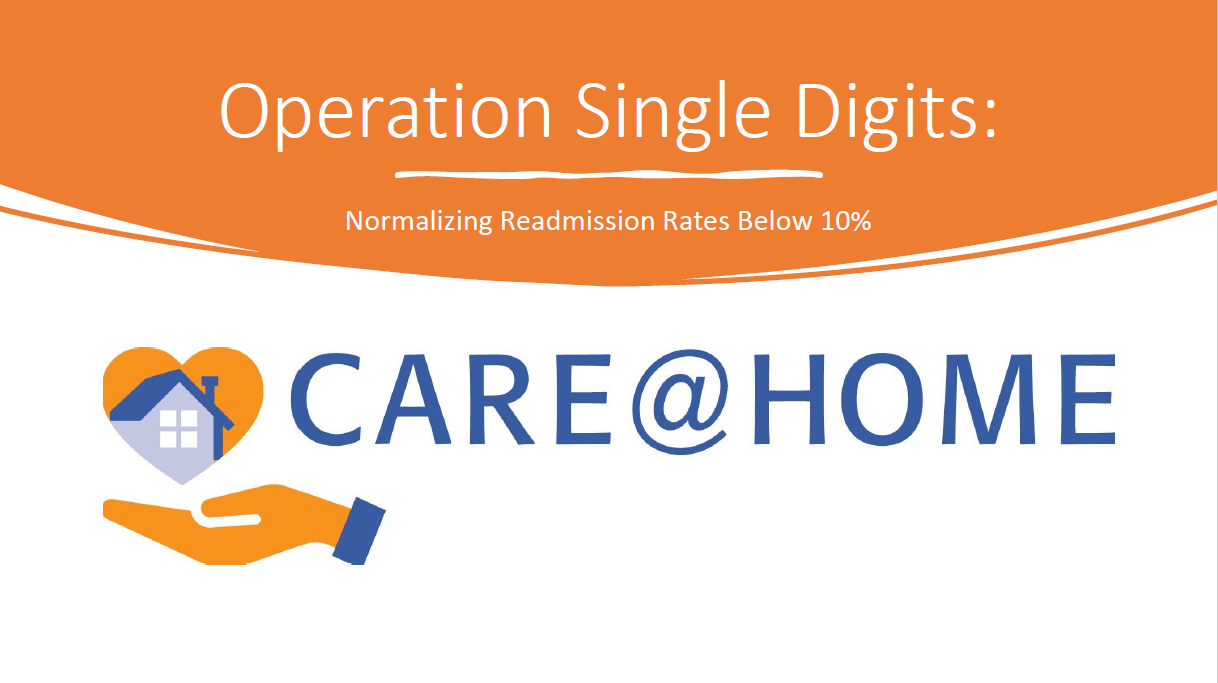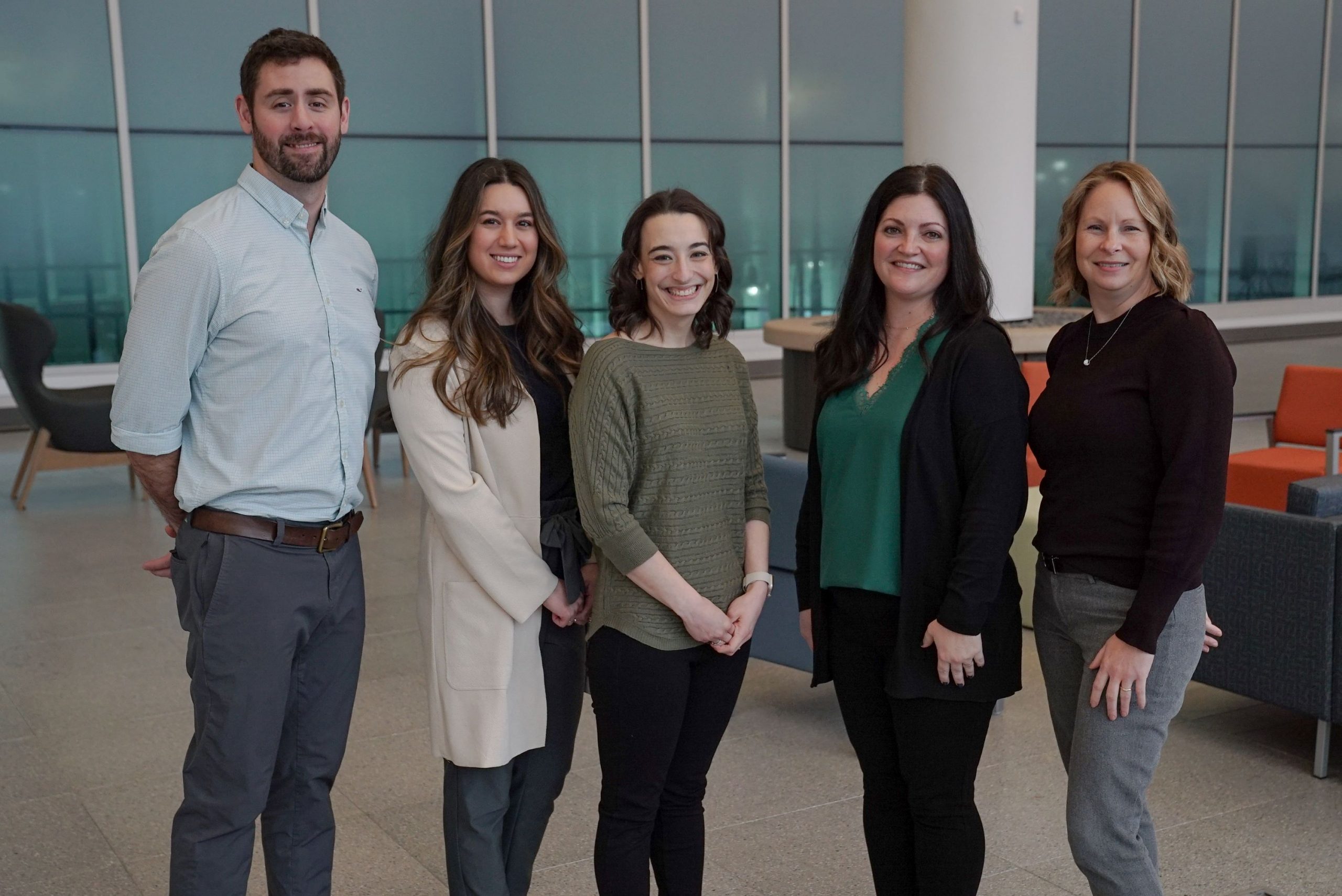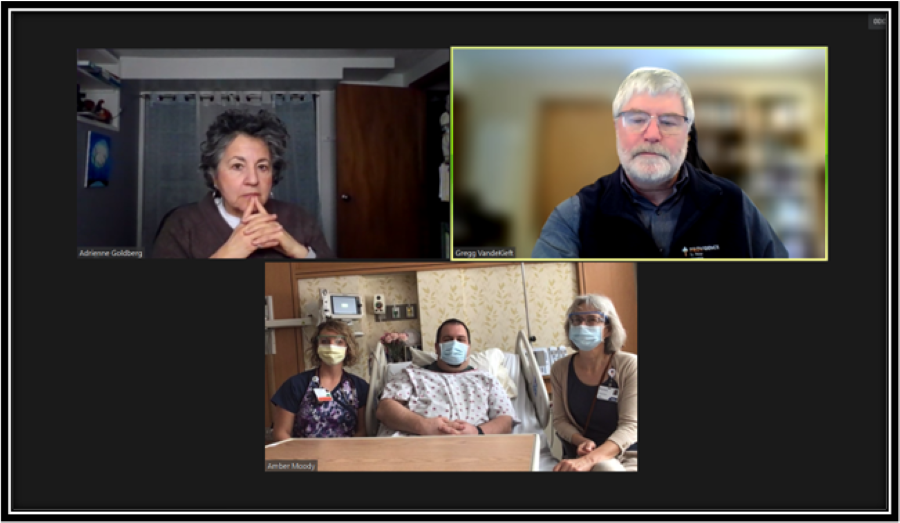Innovation Winners and Finalists
Meet the Innovation category winners of CAPC’s third The John A. Hartford Foundation Tipping Point Challenge. Explore their inspiring initiatives, and contact the project team to learn more.
Finalists
We are pleased to announce the finalists of the third Tipping Point Challenge.
-
Moffitt Cancer Center
“Enriching Interdisciplinary Palliative Care in an Oncology Setting”
Moffitt Cancer Center implemented an initiative to enhance the awareness and knowledge of palliative care within the organization, with a focus on older adults with cancer. Their initiative, Enriching Interdisciplinary Palliative Care in an Oncology Setting, included using previously-established education modules and developing the Palliative Care Nurse Program to improve nurse knowledge and comfort with palliative care topics, enhance interdisciplinary referrals, and improve care outcomes for older adults.
Positive outcomes include increased nursing perception of spiritual support effectiveness, higher referrals to chaplaincy, and improved completion of advance directives. The initiative’s feasibility is supported by strategies such as integrating palliative care into electronic medical records and organization-wide education on advance care planning. The program aims for scalability by training nurses in all clinical areas and addressing equity concerns, with efforts to provide inclusive and age-friendly care while emphasizing sustainability through ongoing dialogue among interprofessional teams.
-
Novant Health
“Advanced Heart Failure Pathways”
After Novant Health identified advanced heart failure patients with the highest risk of mortality (within the next six months), they learned that patients classified under the heart failure diagnostic-related group (DRG) had the highest rates of hospital and emergency department visits. Many patients with this diagnosis died in the hospital without receiving referrals for palliative care or hospice. Barriers identified included limited awareness of palliative care criteria and available services, as well as a lack of a cost-effective hospice care plan for patients requiring inotropes.
To overcome these challenges, the team at Novant Health equipped heart failure nurse navigators with clear criteria for palliative care and hospice consultations, empowering them to engage the attending medical teams for appropriate inpatient heart failure cases and heart failure clinic patients. They established a clinical pathway for hospice admission criteria, including inotrope medication kits, focused plans of care, and educational support for patients, caregivers, and team members.
-
Meri Center for Education in Palliative Care at UCSF
“Poetic Medicine for Grief, Loss, and Wounded Healers”
When living with a serious illness, patients, loved ones, and their clinicians all face the challenges of loss, isolation, and burnout. Since access to both formal and informal bereavement services is limited worldwide, the Meri Center for Education in Palliative Care at the University of California, San Francisco (UCSF) aims to fix this. Since April 2020, the team has built and developed an extensive online program in poetic medicine to support participants with the deep emotional and existential challenges centered around grief. With more than 5,200 participants in 362 workshops, their poetic medicine program has provided a safe space for participants of any circumstance to explore their experiences of loss, grief, love, and meaning. During free, hour-long sessions, participants from more than 12 countries, without any required prior experience with poetic or narrative medicine, read and write poetry together with a pair of facilitators. Participants comment on the unique benefits of poetic medicine, and nearly all report improved well-being, bereavement, and loneliness.
-
The Scripps Gerontology Center at Miami University and The Pennsylvania State University representing Preference Based Living
“Emotion Focused Communication Training (EFCT)”
The way we respond emotionally to others can impact how care is provided. That’s why The Scripps Gerontology Center at Miami University and The Pennsylvania State University (representing Preference Based Living) partnered to develop the Emotion Focused Communication Training (EFCT) program, a validated online training program designed to increase the emotional awareness of caregivers, specifically direct care workers within long-term care settings.
With six modules covering topics such as emotional intelligence and managing emotions, the program has demonstrated positive outcomes, increasing knowledge and self-efficacy among participants. Recognized for innovation by the Mather Institute, the EFCT program addresses a crucial gap in caregivers’ skills and has potential scalability to a national level. Accessible and aligned with equity principles, the training aims to provide comprehensive and compassionate care, with ongoing efforts to promote the modules, study long-term outcomes, and develop booster sessions for sustained impact.




